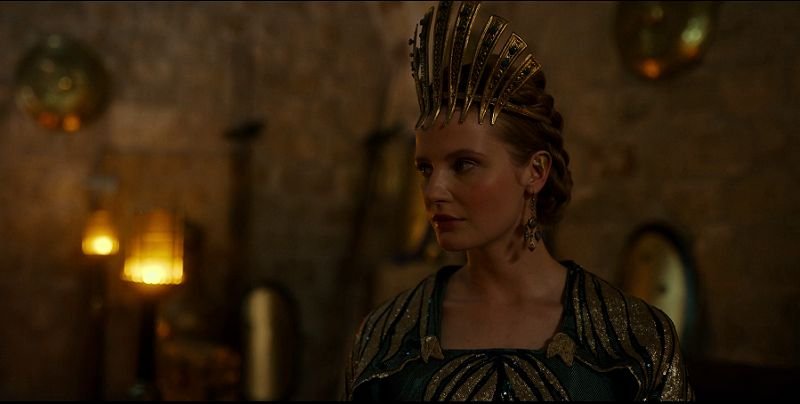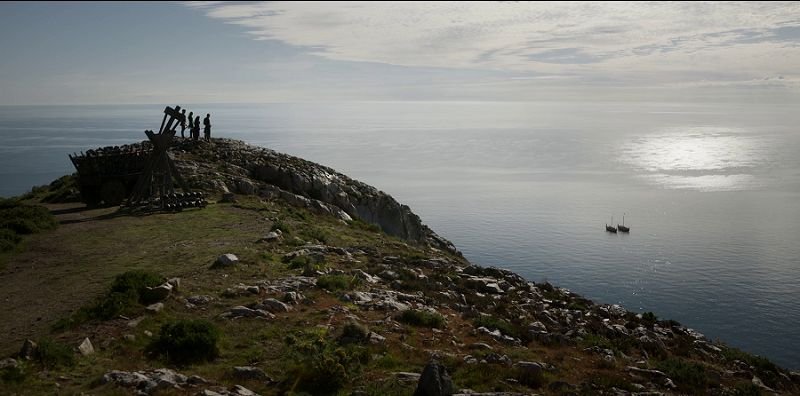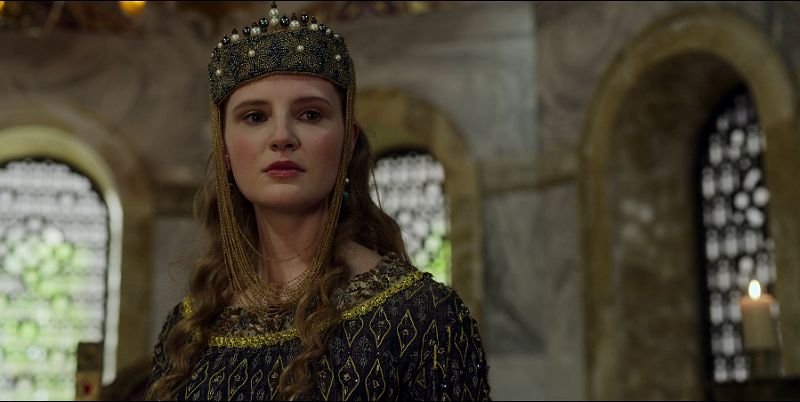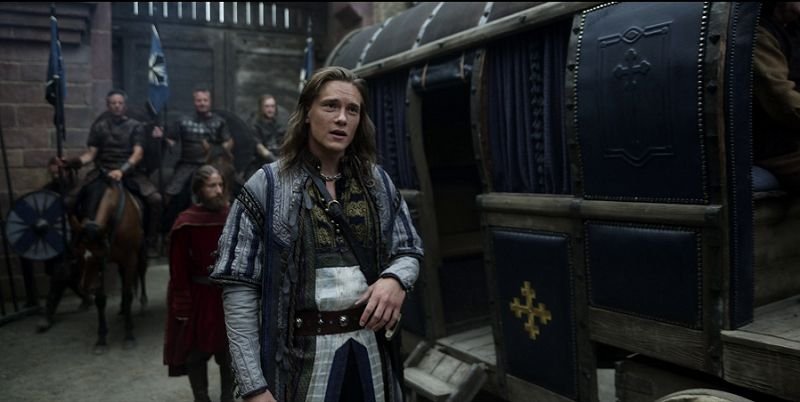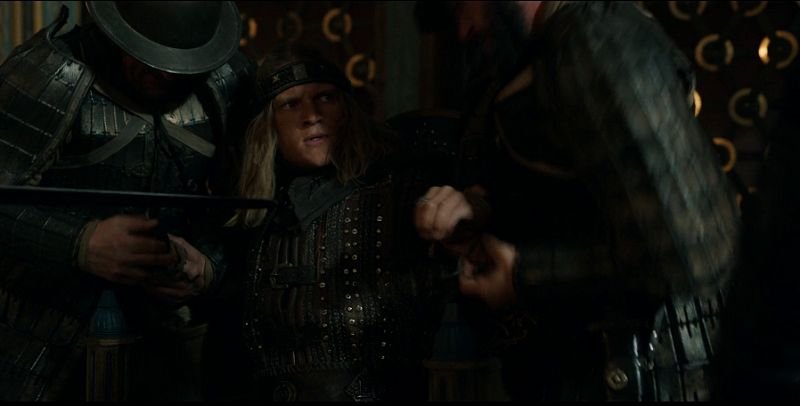Vikings: Valhalla Season 3 (Netflix) Story :-
Vikings: Valhalla Season 3 (Netflix) In their latest adventure, Leo Suter as Harald Sigurdsson, Sam Corlett as Leif Eriksson, and Frida Gustavsson as Freydis Eriksdotter uncover some long-hidden secrets from their past.
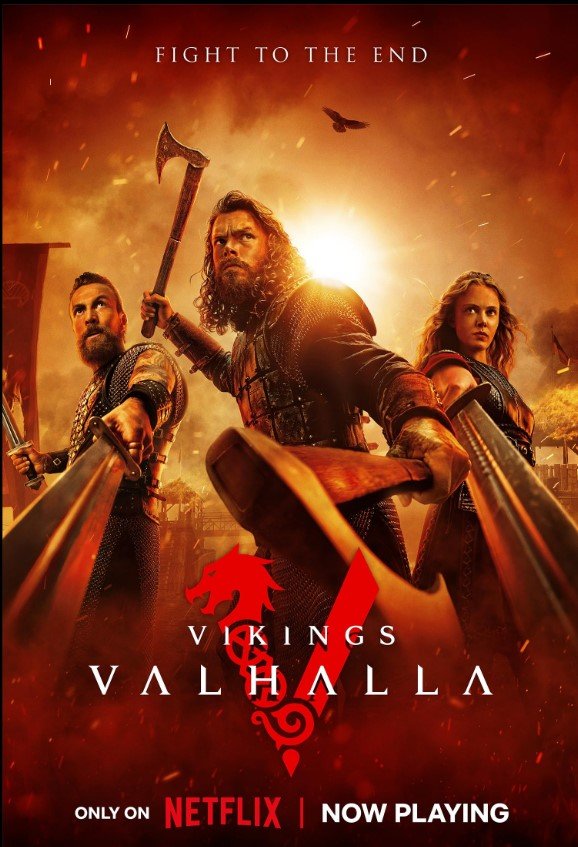
Vikings: Valhalla Season 3 (Netflix) Release Date, Trailor, Songs, Cast :-
| Release Date | 11 July 2024 |
| Language | Hindi |
| Genre | Action, Adventure, Drama |
| Cast | David Oakes, Taylor James, Kayode Akinyemi, Sharon McCoy, Florian Munteanu, Amalia Holm, Nikolai Kinski, Set Sjöstrand, Kateryna Bratchyna, Marcin Dorocinski |
| Director | David Frazee |
| Writer | Jeb Stuart |
| Producer | Sheila Hockin, James Flynn, Sherry Marsh |
| Production | MGM Television, MGM/UA Television, Metropolitan Films International |
| Certificate | 18+ |
What Is ‘Vikings: Valhalla’ Season 3 About?
Seven years after the events of Season 2, Vikings: Valhalla Season 3 picks up with our heroes in familiar yet evolved roles. Freydis remains in Jomsborg, now flourishing under her leadership. A chance encounter with Stigr (Leander Vyvey) brings positive change to her life, but looming threats jeopardize the hard-won peace. Meanwhile, across the world, Leif and Harald’s hiatus approaches a decade. Leif grapples with grief over Mariam (Hayat Kamille) while contemplating his future beyond Emperor Romanos’ (Nikolai Kinski) army. Harald, distracted by rivalry with General Maniakis (Florian Monteanu) and infatuation with Empress Zoe (Sofya Lebedeva), neglects his aspirations to rule Norway.
Meanwhile, in England, King Canute (Bradley Freegard) and Queen Emma (Laura Berlin) navigate a season reminiscent of Succession, as Canute, ruler of Denmark, Norway, and England, contemplates the future of his throne. With their blended family—akin to a Yours, Mine, and Ours dynamic—Canute assesses which of his and Emma’s sons is most fit to inherit. The seven-year leap forward also sees their children and teenagers stepping into active roles, no longer mere pawns but pivotal players in the real-life struggle for succession that will reshape European history.
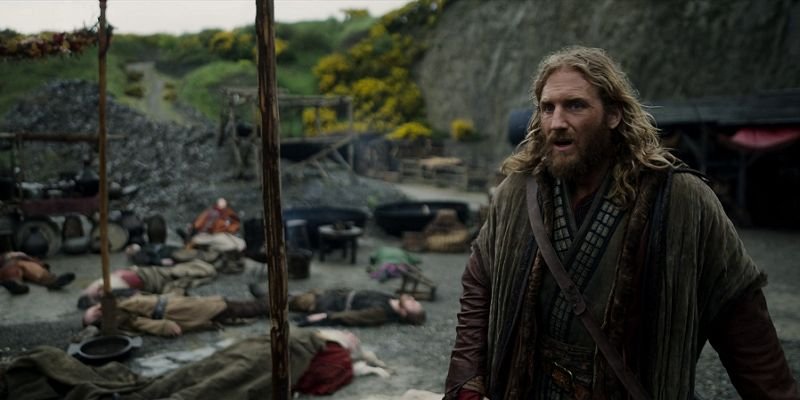
‘Vikings: Valhalla’ Season 3 Prioritizes Character Over Action
Given the characters’ evolving circumstances and a changing world around them, I anticipated this season to significantly increase both the frequency and scale of its action. And indeed, while it certainly amplifies the scale, starting with a monumental battle in Constantinople involving Harald, Leif, and their surviving crew from the Dneiper voyage, along with numerous Varangian guards fighting for the Emperor. This sequence stands out as one of the series’ most impressive, showcasing immense set pieces and a large cast. It’s noteworthy that this season opens with its largest-scale battle yet, underscoring that Vikings: Valhalla remains fundamentally focused on its characters amidst its epic storytelling.
However, that doesn’t mean there’s no other action throughout the season. A group known for their prowess in battle couldn’t possibly go a whole season without fighting, and it would have felt incomplete without those moments. Yet, each action scene following the finale serves to deeply inform the characters’ personal journeys, making them integral rather than mere spectacle.
An early example of this is when one of Leif’s inventions is used to eliminate the fleeing population of a conquered city—a scene that resonates deeply against the backdrop of religious discord. Though brief and brutal, this moment isn’t just about shock; it becomes the catalyst for Leif’s decisions throughout the season, guiding him on the path to becoming the renowned Viking explorer he’s destined to be. While his arc may be quieter among the main trio, Corlett continues to captivate with a subtle intensity, his performance steering Leif towards his future with compelling nuance.
Vikings: Valhalla Season 3 (Netflix) Trailor :-
‘Vikings: Valhalla’ Season 3 Still Makes Time for Romance and Family
In my Season 2 review, I noted how the series wisely continued to explore romantic dynamics that initially drew in the audience, and I’m pleased to report that Season 3 maintains this focus on relationships, even amidst escalating plot developments. From Harald’s forbidden affair to Freydis’s new romance, and Leif’s ongoing struggle with grief, romance remains a significant thread.
However, the most poignantly depicted is the three-season-long love story between Canute and Emma. Their relationship blends approximately seven beloved tropes into a deeply meaningful connection that stands out amidst the series’ tumult. More than just trope fulfillment, their bond is marked by mutual support, effective teamwork, and a genuine sense of equality. Among the series’ romantic arcs in its final season, theirs resonates as the most enduring, quietly enriching the narrative against the backdrop of larger themes of succession.
There’s a significant emphasis on familial relationships, which form the backbone of Vikings: Valhalla. The series, at its core, chronicles the saga of an expansive and deeply interconnected extended family shaping history through their conflicts. In Season 3, Leif, Harald, and Freydis find crucial emotional resolution together. Meanwhile, Queen Aelfgifu (Polyanna McIntosh) emerges as a standout secondary character, commanding Kattegat with a blend of authority and unexpected alliances, particularly with Queen Emma.
While the focus primarily rests on established characters, one notable addition is Erik the Red (Goran Visnjic), whose presence looms large over Leif and Freydis. Though unseen until now, Erik’s legacy profoundly impacts both characters. While earlier seasons explored Leif’s struggle with his father’s brutal legacy, it’s Freydis who ultimately confronts Erik, portrayed with gravitas by Visnjic. His portrayal adds depth to the series, alongside Bradley Freegard’s King Canute, embodying the charisma and cunning that draw followers to Greenland. In line with Vikings: Valhalla’s tradition, Erik exemplifies that the most formidable men are often the quietest and most strategic.
‘Vikings: Valhalla’s Season 3 Time Jump Is Both a Hindrance and a Help
As previously mentioned, Episode 1 of Season 3 resumes the story seven years after the Season 2 finale. This narrative choice proves to be the most compelling direction for the series. At the end of Season 2, Harald and Leif had just arrived in Constantinople, Freydis and Aelfgifu had negotiated a fragile peace, and Canute and Emma were establishing themselves as monarchs during a relatively peaceful period, albeit with the formidable Godwin (David Oakes) now part of their family through marriage. Resuming the story from this point avoids a prolonged adjustment period and ensures a focused, dynamic eight episodes of prestige television.
The time jump notably affects Harald’s storyline. While it effectively explains his formation of the Varangian guard and his strained relationship with Maniakis, it falters in depicting his forbidden flirtation with Empress Zoe. The emotional dynamics between them seem delayed, as if they should have developed earlier, leaving me wondering what could have realistically kept them apart during this time. While this may be a necessary compromise for the season’s overall coherence, it does leave Harald seeming somewhat stagnant in an otherwise flourishing period of his life.
Does ‘Vikings: Valhalla’ Season 3 End Well?
Before Season 2’s release, showrunner Jeb Stuart hinted that while Season 3 marks the conclusion of this specific trio’s arc, there’s potential to continue their stories if given the opportunity. While such statements can sometimes seem like a desire to keep working, Stuart’s vision is clear. The character arcs developed over the first three seasons culminate in natural, satisfying, and at times poignant conclusions, yet their journeys are far from finished. As Europe stands on the brink of significant historical change, signaled by the introduction of pivotal figures like a young William the Conqueror (Ely Solan), Harald, Leif, and Freydis stand at the threshold of life-altering events that history will vividly remember.
For our central trio, the story concludes with them achieving their initial goals, yet it serves as a cautionary tale about the consequences of ambition. Unlike the relatively cyclical nature of the English monarchy storyline, there’s a palpable sense of continuation for the Vikings. The English court, especially the dynamic between Emma and Godwin, appears poised to persist in its familiar patterns. However, for Harald, Leif, and Freydis, the series ends with their futures as vast and uncertain as the seas they traverse. History may dictate their fates, but Vikings: Valhalla’s finale leaves ample room for storytellers to explore their journeys with the same vivid, poignant, and emotionally resonant storytelling that characterized the series.
